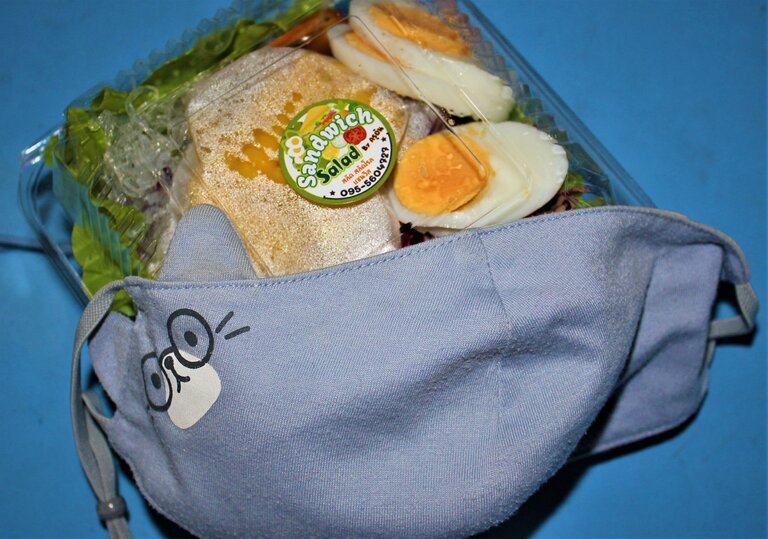
Recently Trish was speaking to a friend at her shop in the market. Piw was commenting on how much she liked the mask that Trish was wearing. A few days later Trish passed by the shop where she had bought her mask and bought Piw one as a gift. On giving this mask to Piw, Piw insisted that she had to pay for the mask. After some skillful communication, Trish was able to leave without receiving payment. However, the next day as I walked past Piw’s I was given a container of salad. Piw could not accept the free gift, she had to give something back of roughly equal value.
One of the things that Thai people struggle with is receiving gifts, even if that gift is free! Receiving something from someone makes you indebted to them. Piw had to level the playing field, she did not want to owe anyone anything! Hence, she gave Trish a salad.
In Buddhist culture, one earns merit by doing good deeds for others. The more merit one can earn in this life, the better your next life will be. One way to earn merit is to give gifts of exchange. This is usually food-based. If I give you a plate with a cake on it you will not return it to me empty, but you will return it with something on it, ie some curry you have made, or a Thai dessert. Thai’s often use the expression the ‘pig goes, but the chicken comes’. This does not mean today I give some pork to my neighbour, but tomorrow he will return the plate with chicken. What it does mean is that today I share the food that I have with my neighbour and in the near future, he will share some of his food with me.
Not being able to receive a free gift creates a challenge in accepting the free gift of salvation that Jesus offers. The Thais will ask themselves the question: “What does Jesus want from me? Will I be able to pay him back for the gift he has given me?” Because they are not able to pay Jesus back – by nature the Thai do not want to receive His gift. They do not want to be indebted to Christ. This worldview thus impacts the way we share the gospel in Thailand.
It is healthy for us to be aware of cultural aspects that may hinder people from receiving the Gospel so that we can think of ways to present the gospel in a way that will be most easily received by the target audience. What are some cultural aspects that may hinder people from receiving the free gift of the Gospel in your own culture?


